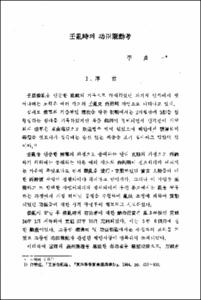{-었었}의 의미와 기능
- Alternative Title
- The Meaning and the Function of {-∂ss∂ss-}
- Abstract
- 국어의 선어말 어미 {-었었-}의 의미 기능은 시제, 상, 서법 등의 관점에서 다각적으로 논의되어 왔다. 특히 상과 서법적 관점에서 '단속성', '완료-재확인(또는 완료 회상 재확인)상', '경험-대조상', '경험'등으로 논의되어 왔다. 본고에서는 이와같이 상이한 논의들이 동일한 사실을 바탕으로 한 것으로 본질적으로는 다른 것이 아니고, {-었었-}이 나타내는 이차적 의미의 규정에서 비롯된 것임을 지적하였다. 그리고 {-었었-}의 의미는 형태소 자체의 기능적 의미에서 규명될 것이 아니고 발화상황에 따른 문맥적 의미에서 논의되어야 할 성질의 것임을 밝히고, {-었었-}은 과거 경험을 진술하는 형태소로서, 그 경험의 주체는 경험사실을 진술하는 화자임을 살펴보았다. 한편, {-었었-}은 형태적으로는 복합형태로 보아 앞의 {-었-}은 과거를, 뒤의 {-었-}은 경험의 진술을 나타내는 것임을 고찰하였다.
The meaning and the function of the pre-final ending {-∂ss∂ss-} have been variously examined in terms of tense, aspect, and mood. In particular, its aspect and mood have been investigated in depth: for example, non-durative, perfective-emphasis (or retrospect), confirmation aspects, and experience in terms of mood.
In this paper, however, it will be suggested that these arguments are not substantially different, but only originate in the different interpretations of the contextual meaning of {-∂ss∂ss-}. Its real function is a matter of discourse level which must be analysized in term of contextual meaning according to the situations of utterance. it can not be simply dealt with in terms of its lexical meaning. In conclusion, {-∂ss∂ss-} expresses experience. The experiencer is the describer of the experience. And {-∂ss∂ss-}is morphologically a compound form.
The meaning and the function of the pre-final ending {-∂ss∂ss-} have been variously examined in terms of tense, aspect, and mood. In particular, its aspect and mood have been investigated in depth: for example, non-durative, perfective-emphasis (or retrospect), confirmation aspects, and experience in terms of mood.
In this paper, however, it will be suggested that these arguments are not substantially different, but only originate in the different interpretations of the contextual meaning of {-∂ss∂ss-}. Its real function is a matter of discourse level which must be analysized in term of contextual meaning according to the situations of utterance. it can not be simply dealt with in terms of its lexical meaning. In conclusion, {-∂ss∂ss-} expresses experience. The experiencer is the describer of the experience. And {-∂ss∂ss-}is morphologically a compound form.
- Issued Date
- 1982
- Type
- Research Laboratory
- Alternative Author(s)
- Ko,Jung Ui
- Publisher
- 연구논문집
- Language
- kor
- Rights
- 울산대학교 저작물은 저작권에 의해 보호받습니다.
- Citation Volume
- 13
- Citation Number
- 2
- Citation Start Page
- 541
- Citation End Page
- 551
- Appears in Collections:
- Research Laboratory > University of Ulsan Report
- 파일 목록
-
-
Download
 000002024652.pdf
기타 데이터 / 1.41 MB / Adobe PDF
000002024652.pdf
기타 데이터 / 1.41 MB / Adobe PDF
-
Items in Repository are protected by copyright, with all rights reserved, unless otherwise indicated.